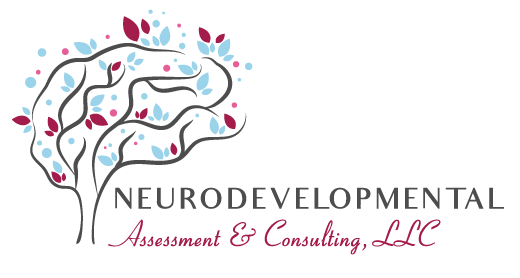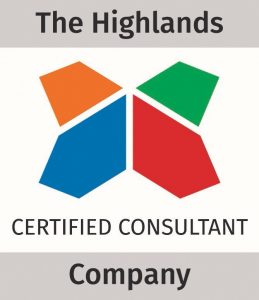What if you could make career decisions with intentionality and clarity, even in uncertain economic times? Or re-evaluate and redesign your career to better align with your values, interests, strengths, and abilities? Or find a career field that matches your unique skills and abilities, even if you have a learning disability, attention problem, or other neurodevelopmental disorder or disability? Or craft your own type of work as an entrepreneur that inspires and motivates you? The key to all of these questions is developing self-awareness and insight into yourself as a person and as a professional. This level of awareness helps provide you with clarity about what gives you energy and purpose; where your natural abilities lie; the skills you have worked to develop through learning, effort, and experience; your areas of passion and interest; and the values and ideals that are the most meaningful for you.
The uncertain economic climate can lead to decisions that are fueled by fear and anxiety. In your career, this fear and anxiety-fueled decision-making can have a range of consequences. You may be tempted to take a potential job opportunity without fully appreciating and evaluating all of the components or aspects of the job and how they match with you, as a person and as a professional. You may take on job responsibilities that are not well-suited to you out of fear of losing your job if you refuse. You may impulsively and abruptly change career fields. In the best case scenario, you will be lucky and end up in a position that is a good fit for your personality, abilities, values, and interests. At the same time, you may also end up in a position that does not fit with one of these areas or is in active conflict with one. Over time, you may begin to feel drained by this position, both physically and emotionally. You may lose your energy and motivation for the job, regardless of the other benefits it provides and even if you are able to continue to meet your job-related standards and expectations. You may begin to feel bored and unmotivated. At worst, you may begin to experience burnout or your job performance may begin to suffer.
In contrast, self-awareness and insight can help in making decisions that are intentional, informed, and aligned to your values, interests, abilities, and skills. Ideally, you may be able to find or craft a career that suits all of these areas. At the same time, if your circumstances or situation does not allow you this flexibility, you can still make decisions with more awareness and a greater sense of purpose. For example, perhaps you are taking a position that does not align with one of these areas as a “stepping stone” to getting where you want to be. Or you are taking on a temporary position due to your current economic situation while you continue to take steps toward your ideal career. Or, you can find outlets and hobbies outside of work that meet some of your values and interests that your job does not satisfy. The goal is to see your career as a journey that will continually evolve over the course of your working life while also having clarity about the destination.
Values
Understanding and awareness of your own personal values is key to setting goals and taking steps to reach them. Values are the guiding principles and ideas that are important to you. While many core values may be stable in your life, the relative importance of each one or the attention and focus on one may change over time or related to your circumstances. Additionally, personal and professional values may overlap, though they are not always the same for everyone. Therefore, engaging in regular self-reflection and values clarification exercises are crucial components of developing a clear vision and direction for your career.
Interests
Your interests are the areas where you feel inspired, are driven to work hard, and seek to continually learn and grow. Interests and passions provide the motivation and energy to reach the goals you set based on your values. If you have a passion for a specific goal, then you are much more willing to expend the effort to meet that goal. You are also less likely to give up when you encounter an obstacle or unexpected challenge. Your interests may inspire you to think about or solve a problem in a new way or develop expertise in a specific area. Because you are heavily interested and invested in these topic areas, engaging in them can often be an enjoyable experience.
Abilities
Abilities are the things that come naturally and easily to you. While there may be debate about whether abilities are inherent and due to genetics or are the result of the combination of strong interests and practice, we all have natural tendencies and gifts that can be assets in the workplace. Abilities are the things that develop with very little effort on your part and are usually present from early in life. For example, strong musical or artistic inclinations and abilities, quickly and easily performing mathematical calculation, systematic and logical thinking, or strong visualization and mechanical abilities. You may be unaware of how you developed these abilities or why these things come so easily to you when others have to work at them. Finding a career that aligns with your abilities helps you to use these talents in a productive way. It also allows you to contribute your abilities and thinking processes in ways that complement those of others.
Skills
Skills are areas of competence and expertise that you have developed with effort and experience. Unlike abilities, you have had to work to develop these areas and will only become proficient (and maintain your proficiency) with practice. Initially, you will have to exert a high level of effort when you are learning a skill; however, with regular practice over time, skills become more natural. If you have developed skills in areas that correspond to your interests, the process of learning and practicing the skill is likely to be much more enjoyable and tolerable than developing skills in areas where you lack interest or motivation. Additionally, your abilities can help facilitate the development of skills over time. Because you have had to work to develop these skills, you may be more aware of the process of acquiring them and better able to teach others to do so. The specific process and practice of acquiring skills also influences your eventual proficiency; in order to keep progressing, you must continue to challenge yourself and put yourself in novel situations that force you to use your skill in a new way.
Conclusion
Uncertain economic times do not have to force you into career decisions that are fueled by fear and anxiety. Instead, the intentional development of self-awareness and insight can lead to making decisions with purpose and clarity.



